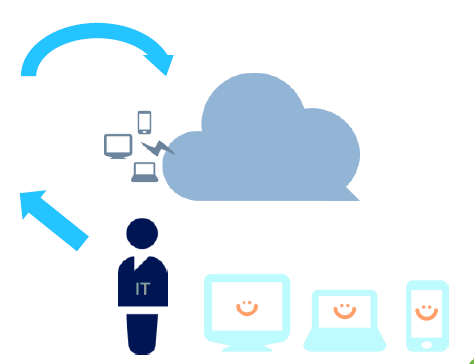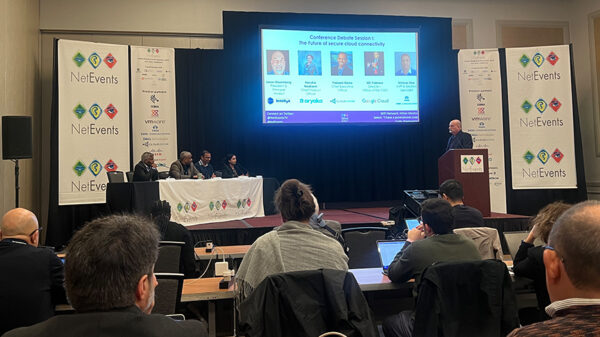The Philippines is fast emerging as a big adopter of cloud technologies. Like in other Asia-Pacific markets where business demands are increasing, the adoption of cloud computing or ‘as-a-service’ offerings among business organizations in the Philippines is steadily growing and can spur business innovation.
This was announced by virtualization and cloud infrastructure provider VMware, Inc. based on the results of the VMware Cloud Index 2013, an online-based study conducted by Forrester Consulting across Asia-Pacific (excluding Japan) to 2,785 senior IT and business decision-makers in July 2013.
Designed to monitor the region’s adoption of cloud computing, the survey was participated in by 14 countries, including the Philippines, a first-timer in the study.
The Philippines topped the rankings among APAC nations in terms of intent to adopt cloud computing as 44% of respondents are currently planning to implement cloud computing and realizing its potential contributions to their business. Believing that cloud computing is the top priority in their organization, 92% of respondents from the Philippines and Thailand say they must act quickly and cost effectively provide cloud services to their businesses.
For 35% of Philippine-based respondents who have already migrated to cloud computing, they are now experiencing the impact of having implemented it in their business operations.
“Business demands are driving the need for the evolution of IT. Many businesses are now embracing cloud computing, and are realizing the benefits it offers to business operations,” said Emmanuel Portugal, Country Manager for VMware Philippines.
Portugal added that as businesses deal with rising customer expectations, while improving customer satisfaction levels as important growth drivers, IT efficiency and responsiveness is critical, or organizations may risk falling behind competitors.
Another finding in the study is the need for flexibility and disaster recovery for hybrid cloud to quickly respond to the demands of the business. This is particularly important when natural disasters or occurrences interfere or stop business operations.
“Particularly in the Philippines, where business operations are often interrupted by unpredictable weather conditions, the need for flexibility and disaster recovery has led to companies exploring hybrid cloud options,” explained Portugal.
In this case, a shift to Infrastructure-as-a-service (IaaS) is necessary so IT operators and distributed application developers can immediately provide new infrastructure without waiting to purchase, ship and install physical servers within their own data center. Though this may take time and resources for organizations to gain the expertise, resources and investment to deploy and manage cloud infrastructure.
For the purposes of learning, and implementing hybrid cloud in their organization, 35% of senior IT and business decision-makers from the Philippines, South Korea, Australia and India said their companies will invest more time, money and skills around hybrid clouds in 2013 and 2014.
Meanwhile, as business needs widen, so is the changes in technology. The study claimed that there are four market imperatives that drive the adoption of cloud technology among businesses. These are the continued empowerment, improvement and change in user experiences by delivering the latest technology trends; the rise in mobility where workers are connected in various computing devices or using mobile devices to perform their work; helping customers turn vast volumes of data into valuable insights, and a customer can be a digital disruptor or someone who can change the way a firm do business.
It was also noted in the study that cloud computing approaches help accelerate business improvements in the Philippines. Technology was also seen as a change enabler as it allows users to do things that he couldn’t in the past, or do things faster than before.
The study claimed that if users do not improve their knowledge about cloud computing and software-defined data center, they might be left behind in terms of competitive advantage. In fact, 65% of respondents agreed that they may risk falling behind their peers professionally if they don’t improve their knowledge of cloud computing and software-defined data center.
“In this new era of cloud computing, organizations need to take a holistic approach to planning, building and operating their IT infrastructure,” said Portugal. VMware believes the software-defined data center will enable organizations to build infrastructure that is radically simpler and more efficient, while delivering agility and flexibility to support business growth,” claims Portugal.
According to VMware, the IT outlook for 2014 involves the focus on virtualization and the software-defined datacenter, mobile device management and end-user computing. Companies will pour more investments in time, money and skills in both private and hybrid clouds. And with the aggressive adoption of BYOD (bring-your-own-device) in the worksite, proper infrastructure for BYOD (bring-your-own-device) program will be given due attention.



















































































































